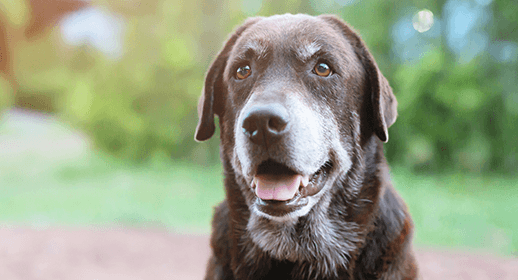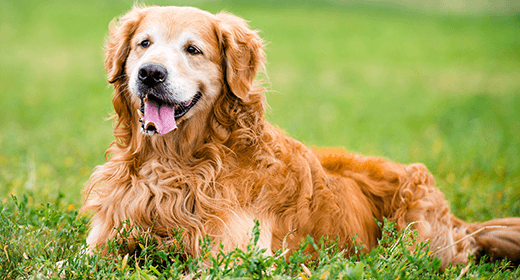If you see signs of aging in your dog, don't wait to feed him the proper diet. Feeding a high-quality, premium food throughout your dog's life is the best way to help him age gracefully. When your dog reaches his mature years, choose a food like IAMS™ ProActive Health™ Mature Adult for nutrition suited to this stage of life. 'Good nutrition starts early,' says Dr. Michael Hayek, an IAMS research nutritionist who specializes in geriatric nutrition. 'It should be viewed as proactive health care because it may be a deterrent to aging later on.'
If your dog already exhibits signs of aging, look for a high-quality, balanced maintenance food that caters to his changing metabolism. When you're shopping for a formula that's right for your dog, look for and compare these important points:
- High-quality animal protein. Just like us, as dogs grow older, they naturally tend to lose lean muscle mass. High-quality protein can provide the essential amino acids your dog needs to minimize the loss of lean body tissue. Dogs function best on high-quality animal-based proteins from sources such as chicken or lamb. Some believe that aging dogs should be fed less protein to prevent kidney disease. However, the evidence is just not there. Reduced protein has a significant effect only after a certain level of kidney dysfunction occurs. If you're concerned about your dog's kidney health, your veterinarian can run assessment tests and recommend appropriate treatments if they are needed. 'If your dog is generally in a state of good health,' explains Dr. Hayek, 'protein should not be restricted. Rather, it should be available for building those all-important muscle reserves.'
- Lower fat. A less-active, mature dog needs fewer calories. Look for a food that's low in fat compared to adult formulas, but don't eliminate fat completely. Pick a formula with at least 10% fat. Older dogs still need essential fatty acids in their diets to help promote healthy skin and coat.
- Moderately fermentable fiber. Fiber promotes digestibility and helps your dog absorb nutrients. At the same time, it should help maintain a healthy intestinal tract, which can be problematic for aging dogs. IAMS includes dried beet pulp, a patented fiber source, in all of its foods to make elimination easier and regular.
- Antioxidants. These help maintain balance within the body by ridding it of harmful free radicals, which increase as a dog ages. Antioxidants fend off free radicals and help protect cell membranes. To maintain your dog's immune-system response to free radicals, feed a formula with antioxidant nutrients such as vitamin E.
- Vitamins and minerals. A high-quality, nutritionally balanced dog food should include all of the essential nutrients in the proper proportions. You might think your mature dog needs vitamin and mineral supplements. In fact, unless your veterinarian specifically identifies a deficiency, vitamin and mineral supplements are unnecessary and, in some cases, may do harm by creating an unhealthy imbalance.



